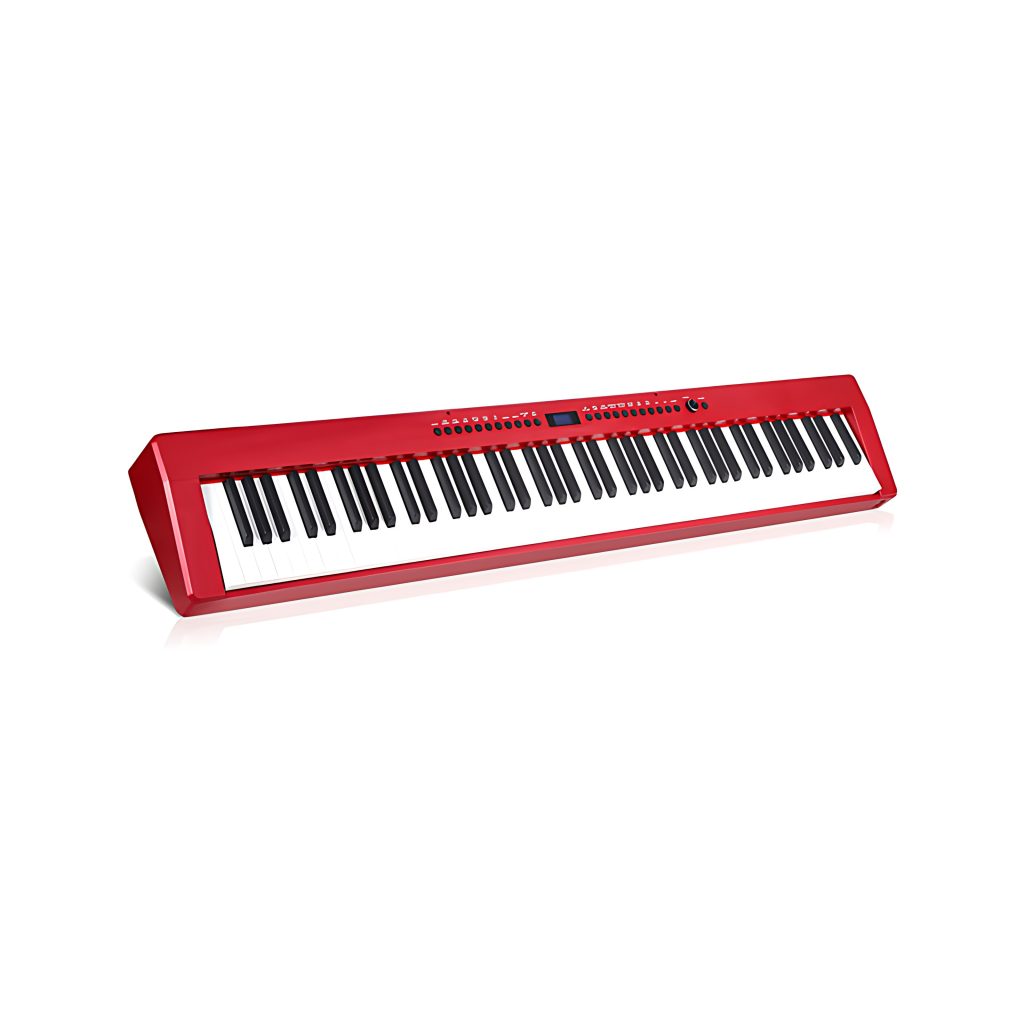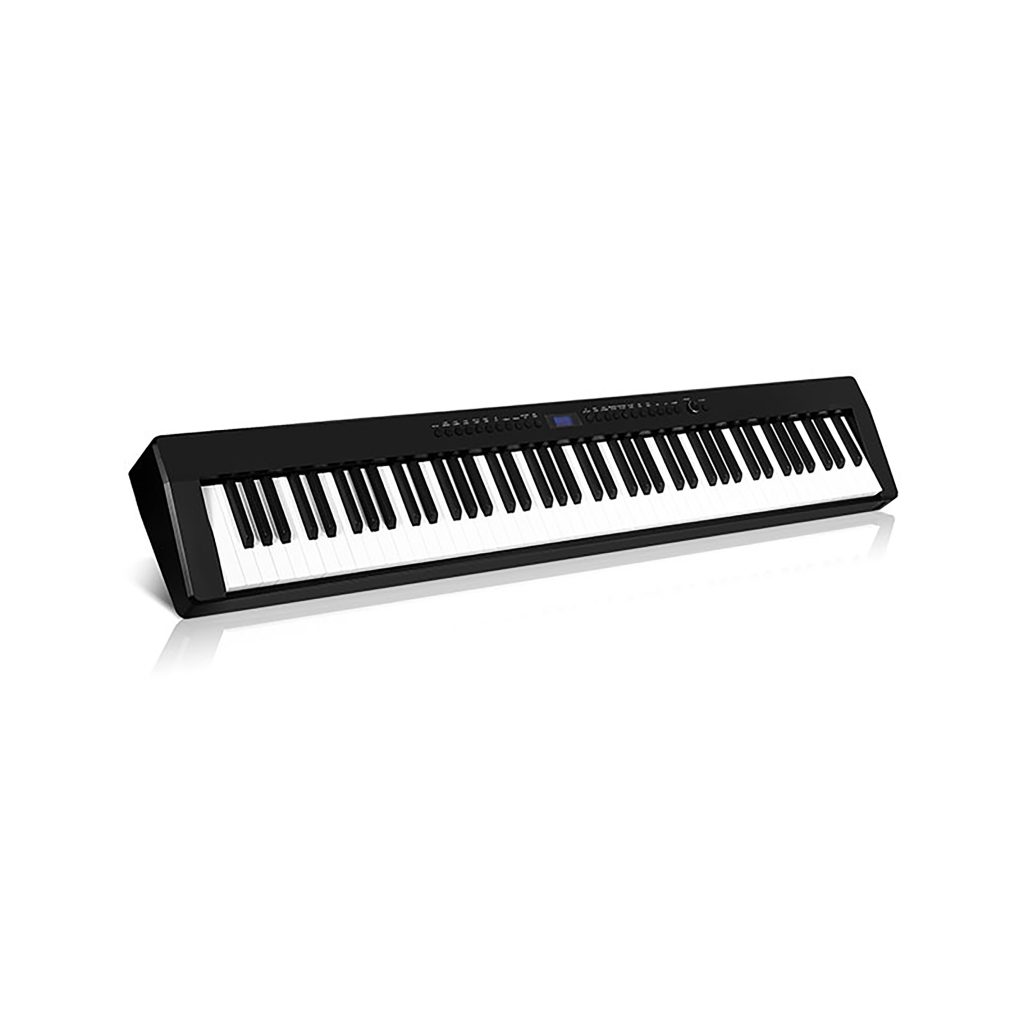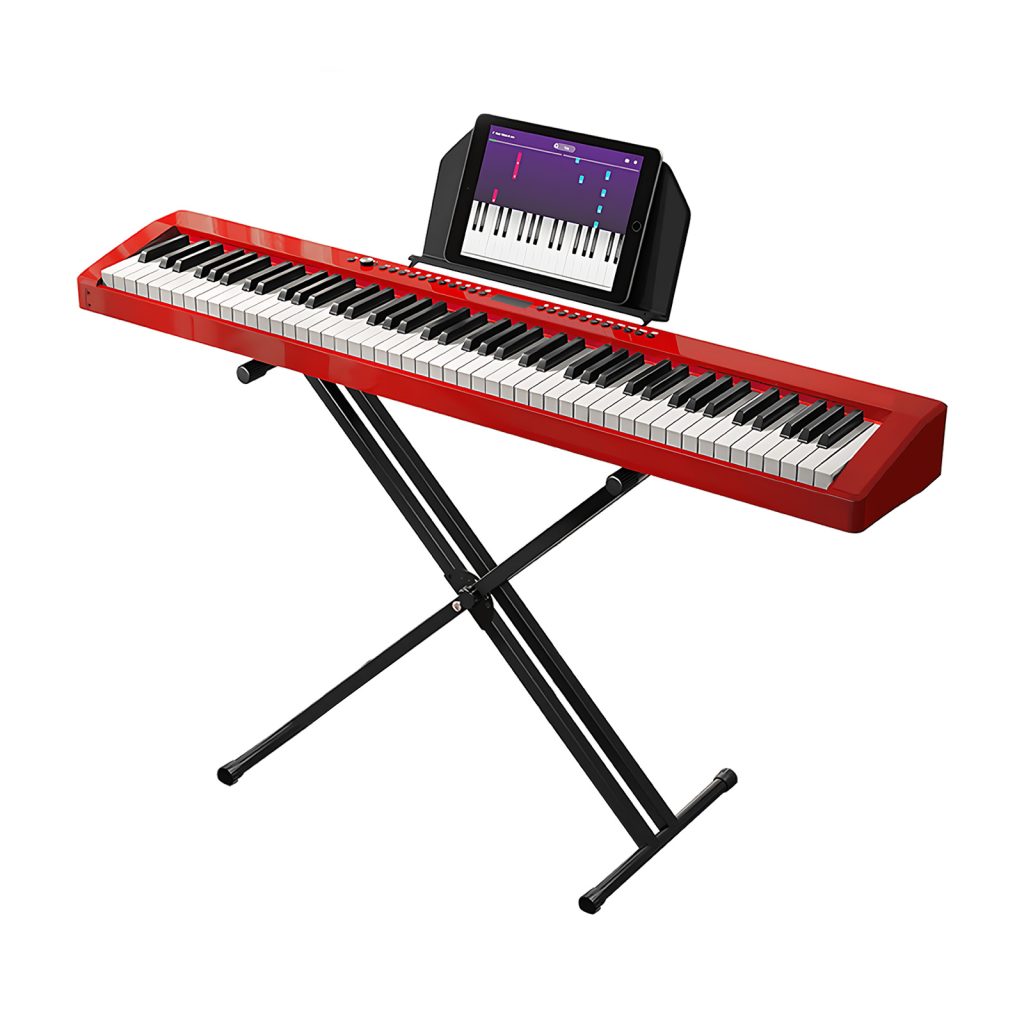Selecting a good electronic piano involves considering several key factors to ensure you choose the instrument that best meets your needs and preferences. Here’s a guide to help you pick the right electronic piano:
1.Determine Your Needs: Consider your level of expertise (beginner, intermediate, advanced), musical goals (learning, practicing, performing, recording), available space, and budget before selecting an electronic piano.
2.Evaluate Key Action: Pay attention to the key action of the piano, which determines how closely it replicates the feel of an acoustic piano. Weighted keys simulate the feel of a traditional piano, while semi-weighted or synth-action keys may feel lighter and more responsive.
3.Assess Sound Quality: Listen to the piano’s sound quality, ensuring it produces authentic and realistic piano tones. Look for pianos with high-quality sampling technology and multiple layers of dynamic expression for a more lifelike sound.
4.Consider Polyphony: Polyphony refers to the number of simultaneous notes a piano can produce. Higher polyphony counts allow for more complex playing without notes dropping out, making it crucial for advanced players and intricate compositions.
5.Explore Built-in Features: Evaluate the built-in features of the electronic piano, such as preloaded sounds, effects, recording capabilities, metronome, and connectivity options (USB, MIDI, Bluetooth). Choose a piano with features that align with your musical preferences and workflow.
6.Test Playability and Responsiveness: Playtest the piano to assess its playability and responsiveness. Ensure the keys respond accurately to your touch and provide adequate resistance for dynamic playing styles.
Consider Portability: If you plan to transport your piano frequently or have limited space, opt for a lightweight and compact model that offers portability without compromising on sound quality or key action.
Research Brands and Reviews: Research reputable brands known for producing high-quality electronic pianos and read customer reviews to gain insights into user experiences and satisfaction levels.
Set Your Budget: Determine your budget range and prioritize features accordingly. While higher-priced pianos may offer advanced features and better build quality, there are also budget-friendly options available with decent performance.
Try Before You Buy: Whenever possible, visit a music store to try out different electronic pianos in person. Playing them firsthand allows you to assess key action, sound quality, and overall feel, helping you make an informed decision.
By considering these factors and conducting thorough research, you can confidently choose a good electronic piano that suits your musical needs, preferences, and budget.
Our company is a comprehensive enterprise ingratiating research and development, design, production, sales and service. We produce several kinds of electronic piano for all over the world.
If you want to know more details, add my
whatsapp +86 17706062278.
Gmail: anngood88day@gmail.com










